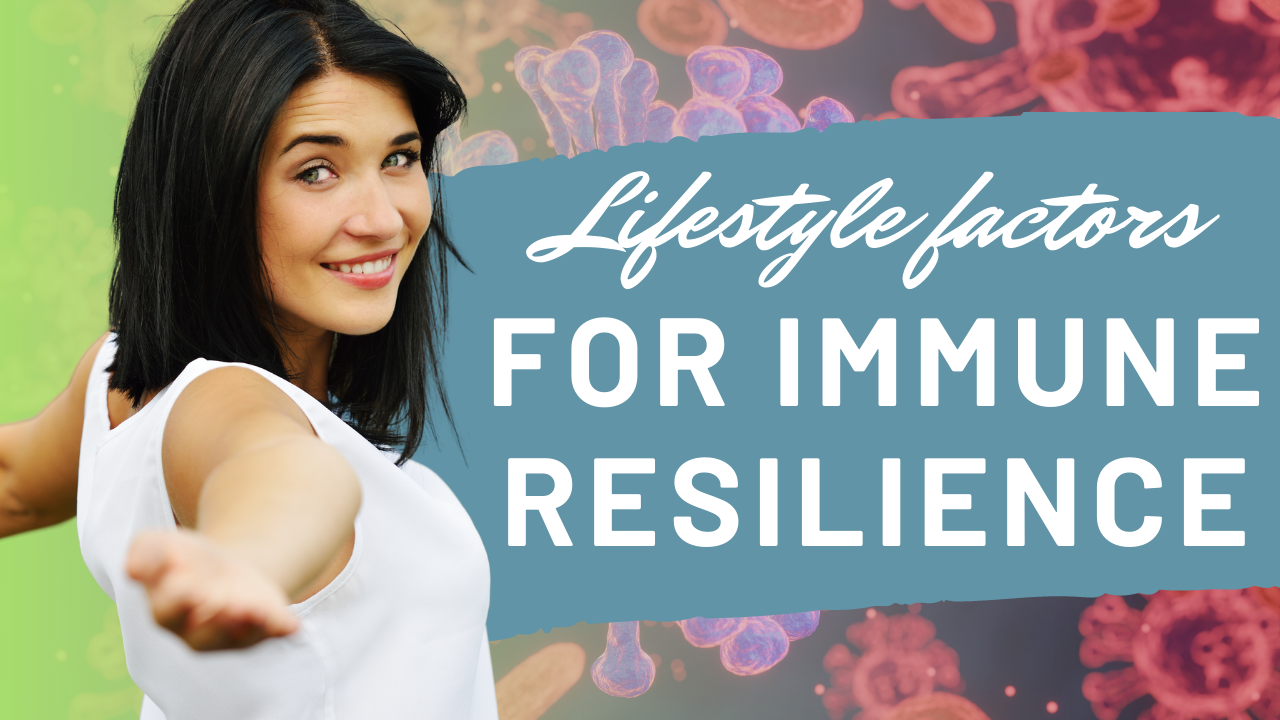|
It can be easy to take our immune system for granted, especially when we're feeling healthy. But the fact is, a strong immune system is a key to maintaining our overall health and well-being. How do we go about building resilience in our immune system? Turns out, there's quite a bit of science behind it! Read on to learn more about what makes a resilient immune system, and how you can start strengthening yours today. When it comes to immunity, the most common question I get asked and see on the internet is: “How do I boost my immune system?” or “What are the best foods to boost or protect me from common colds or cases of flu through winter?” In reality, that's a bit of reductionist thinking as the immune system is the most complex and dynamic in the entire body.
It's made up of a network of organs, tissues, cells, and bacteria that all work together to protect you against foreign invaders. What we want for optimal function is for the immune system to be balanced. It should have a resilient army that works to firstly recognize the threats and then respond to them appropriately. It may not be enough to just simply boost it on one side or the other. How do we create resilience? The answer to that lies in the fact that we need to think more holistically. We need to think of interacting body systems and lifestyle factors that affect them daily It lies in the small things that you can do consistently every day, or at least, most days that build up immune resilience. 1.First up on the lifestyle tips is to consider stress. This point always comes up and seems to be increasing for most people daily. Chronic stress is associated with an increased risk of viral infection, like the common cold. Furthermore, stress affects both respiratory disease susceptibility and severity. It is believed that stress causes immune dysregulation or inappropriate response, which then results in lowered defence against infection. How do we better handle stress? You must think of how you deal with stress. Do you feel overwhelmed very easily or can you handle more pressure? Then, find what works for you to prevent overwhelm when you know that you might be reaching that level. You can then add in one of these small, easy, research-backed stress-busting techniques throughout your day. These can include yoga, Tai-Chi, and Qi Gong. Taking a walk in nature is a fantastic option too. Playing with the pet and even deep breathing exercises help. Here is an example: Inhale while you count 1- 2 - 3 - 4. Then hold in 1 - 2 - 3 - 4. The breathe that out for the count of 6. This is a great way of instantaneously calming your body. Of course, you can opt to have a nice warm bath with some essential oils at the end of the day. 2.Next up, connection. Human beings are wired to connect and interact with each other. Having a sense of community is vital for immune resilience. Research has shown that a lack of social connection is greater detrimental to health than obesity, smoking, or high blood pressure. Whereas, if we have strong social connections, this can strengthen our immune system in part, because the genes that are impacted by loneliness, also code for immune resilience, immune function, and inflammation. Strong social connections also help you recover from disease faster. Needless to say, having these immune-boosting or immune resilience effects can help you live longer. It has been shown that having a community connection lowers rates of depression and anxiety. Having a sense of community is something that can come in any form. You might spend time with family, be part of social groups or sports teams - it doesn't have to involve conversation! If you're feeling more upbeat then how about joining a hiking club? You can also join religious groups if you want. Having a sense of a higher power or a greater being has been shown is shown to be just as effective as having interpersonal connections. The best thing about being around people who share your interests will make all aspects feel less overwhelming; there's nothing like good company on hand when life gets tough (and believe me: these days everything seems difficult). 3.Then, we have sleep. Sleep plays a powerful role in supporting healthy immune system function. This is so as the benefits of sleep are both preventive and restorative. During sleep, your body produces proteins called cytokines, and these fight inflammation and infection. When you're exposed to infectious pathogens, if you have inflammation in your body, or if you're experiencing chronic stress, your body increases the production of the cytokines to help fight these infections. This then helps offset the illness. It stands to reason that if you experience a lack of sleep or sleep deprivation, this will hinder the immune response and impact your body's ability to naturally fight off infections. The common question is: “How much sleep should we get?” Generally, 7 - 9 hours is best for most, but it's not just about hours. Timing is also essential especially in keeping it consistent and within that circadian rhythm. This is because all our cells have an internal clock that is regulated by genetics, hormones, and proteins. All these signal when it's time to wrap up or dampen down metabolic processes, and when it's time for repair. In other words, when it’s sleep time. These processes like consistency. Consistent sleep patterns better prepare your body to fight off unexpected illness and getting enough of it supports your overall health and wellbeing. Whereas, the lack of sleep could slow down your immune response and allow illnesses to progress to that last step. 4. Lastly, we have to exercise. Moderate regular physical exercise helps your immune system function by raising the levels of infection-fighting white blood cells and antibodies. It also increases circulation and decreases stress hormones, therefore it’s a great option for keeping down stress. Physical activity also provides the movements the body needs to oxygenate, circulate blood and nutrients and eliminate waste from cells. All of these processes are essential to the function of the immune system. The lymphatic system, which is predominantly found in the neck, armpits, and groin, is then stimulated through movement and that too plays a big role in the transport of immune factors. The question now is: “How much exercise should we be having?” The thing is just start moving. Get up from behind your computer and start to move around. That's a really good place to start. Then, you can work up to 15 minutes a day of any sort of movement. You could opt to walk around the block, go for a swim or play with the dog for 30 minutes a day. Consistency is key. Always be consistent throughout the entire year for all of these things. These are all lifestyle factors that you have within your control. Doing these need only take small adjustments to make a really big impact. Now is the time to get started. We hope you’ve found these tips helpful. If you’d like more personalized advice onhow to boost your immune system, please don’t hesitate to reach out for a free discovery call. During this call, we can assess your specific needs and create a plan tailored just for you. Thanks for reading! If you haven’t joined our Private Facebook Group, please do HERE If you’re looking for a more natural way to manage your health, please contact us Here for a discovery call to see if our approach would be appropriate for your situation. DISCLAIMER: The information in this email is not intended nor implied to be a substitute for professional medical advice, diagnosis or treatment. All content is for general informational purposes only and does not replace a consultation with your own doctor/health professional
0 Comments
Leave a Reply. |
Archives
November 2023
Categories |

